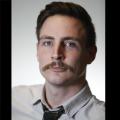MEET Oxford's answer to The Wombles.
A group called Oxford Circular Collective are on a mission to create a waste-free city.
Riding their modest 'fleet' of four trailer-towing bikes, the team of 11 volunteers travel the city collecting clothes, electricals and materials that would otherwise go to waste, and giving them a new lease of life.
The collective recently published their first end-of-year report – and the results are impressive.
In 2016/17, the team collected 236kg of 'waste' on 23 trips and delivered 228kg of that to new homes.
The group had 23 meetings with other recycling organisations, set up stalls at seven city events and clocked up more than 2,000 volunteer hours.
The volunteers also created the group's first office: a garden shed built with reclaimed wood.
Now they are looking to build on that success in the next 12 months.
But more than that, operations manager and founder Alex Mates says she wants to help create a new world where waste in not a problem to be solved.
She said: "I see the Oxford Circular Collective as one prototype of new business models that would create consumer-to-organisation circular flows.
"I also see it as a charitable and/ or business model because the current consumption system has created a major imbalance between the poor and the wealthy, between the natural environment and anthropogenic environment."
Miss Mates, an Aberystwyth University graduate, founded the collective in 2015.
She now runs it in her spare time, alongside a full-time job as Oxford City Council's recycling promotions officer.
To give a scale of the challenge, each year the entire county of Oxfordshire produces about 300,000 tonnes of waste.
Some 95 per cent of that is incinerated to produce electricity for homes, but waste campaigners like Miss Mates argue it would be better still if we could stop throwing so much away in the first place.
The circular collective states its four key objectives in its constitution:
1. Create a convenient collections-sort-deliveries service for reusable, repairable, recyclable and upcyclable items
2. Facilitate household donations to not-for-profit re-users and repairers in a zero-carbon way
3. Create a viable example of a resource distribution system for a local circular economy
4. Increase awareness of circular economy, social and environmental topics
In the annual report, Miss Mates said she was happy the group was meeting all of its objectives.
Looking ahead, Miss Mates said she was now considering whether to register the group as a social enterprise or co-operative, and was hoping to collaborate more closely with local councils, universities and charities.
In a slightly sad note for the bike 'fleet', she said she was also considering upgrading with an electric van – presumably a secondhand one.
PANEL 1: Collections and deliveries
Collected items: 236kg
Sorted items: 232kg
Recirculated items and materials: 228kg
Collections performed: 23
Upstream clients: 13
Downstream clients: 15
Carbon emissions avoided: 0.35 tonnes






Comments: Our rules
We want our comments to be a lively and valuable part of our community - a place where readers can debate and engage with the most important local issues. The ability to comment on our stories is a privilege, not a right, however, and that privilege may be withdrawn if it is abused or misused.
Please report any comments that break our rules.
Read the rules here